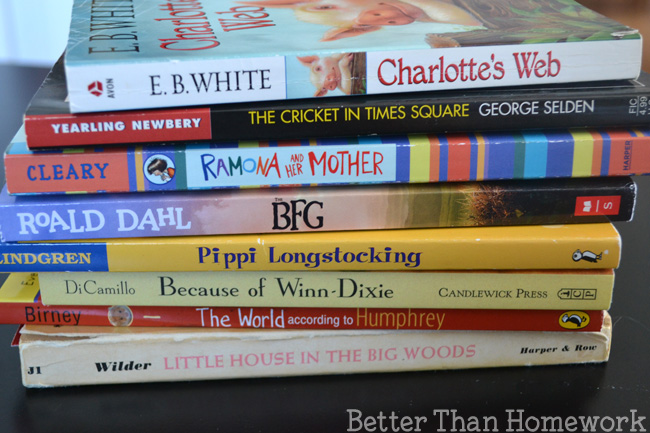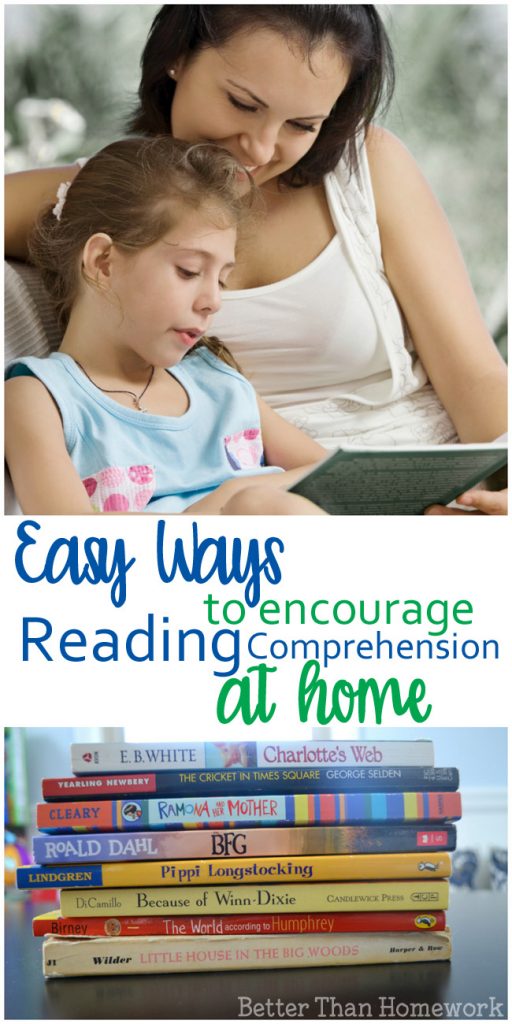Can we talk parent to parent here for a moment?
Do you ever feel completely lost when you try to help your kids when their school work? Like, how can you help them when they’re learning to read?
There’s more to reading than just decoding words. You’ve got to string all those decoded words together into sentences, paragraphs, and stories to find out what they’re trying to say.
I know that and I know you know that. Even our kids know that.
But, sometimes when kids are learning to read and struggling to sound out words, the meaning behind those words gets lost.
So, how can you, as a parent, help your child with reading comprehension?

Over the years, I came to realize that read aloud time was more than just a cozy bonding time with my kids. There were so many benefits. One of which was helping my kids with reading comprehension. My girls’ teachers confirmed this for me every single year.
That’s why I kept up our read aloud time even when my girls started reading more and more themselves. Even now, when they’re both comfortable reading their own chapter books, we still have read aloud time. I love sharing some of my childhood favorites with them this way.
Disclosure: This post contains Amazon Affiliate links. Please see my Disclosure Page for more details.
Table of Contents
How does read aloud time help with reading comprehension?
When your kids are listening to you read, they’re no longer trying to decode those words. The struggle to figure out a word is set aside and they can relax and enjoy the story.
You can read and enjoy more difficult books. On their own, your child may still be working on simple BOB Books, but when you read together, you may be enjoying Charlotte’s Web.
Your kids are free to focus on understanding the story. That’s a powerful advantage.

How can I help my child work on reading comprehension?
It’s simple. Just talk about the story, ask questions and let your kids ask questions. Tailor your questions to the story.
Ask about the main character. Then, ask about the setting and the plot. Did your kids pick up any details?
Try one of these questions:
Where does the story take place?
Who (or what) is the story about?
What happened at the beginning of the story?
What happened at the end of the story?
Take it further and help them make inferences about the story:
Why do you think the character did what they did? (Add in details from the story you’re reading.)
How do you think the character felt?
What do you think happened next?
Notes from the trenches: I found that adding “do you think” to my questions helped my kids relax and think about the question. With the simple additional words, I let them know that there wasn’t a right or wrong answer. I just wanted to know what they thought. It made a world of difference.
Keep it conversational and natural. You certainly don’t want to turn read aloud time into a chore, because the most important thing is to keep it enjoyable.
Reading aloud is so beneficial and so much fun. Keep it up. You’re helping your kids so much.
You’ve got this.

You may also like one of these posts:
Keeping the Lines of Communication Open with Your Child’s Teacher at Creative Family Fun
Connection After School: The Questions You Should Be Asking at Creative Family Fun
Latest posts by Terri Thompson (see all)
- Cardboard Tube Turkey Craft - October 30, 2023
- Simple and Fun Shape Crafts for Toddlers - October 25, 2023
- Thanksgiving Math Activities for Kids - November 10, 2022